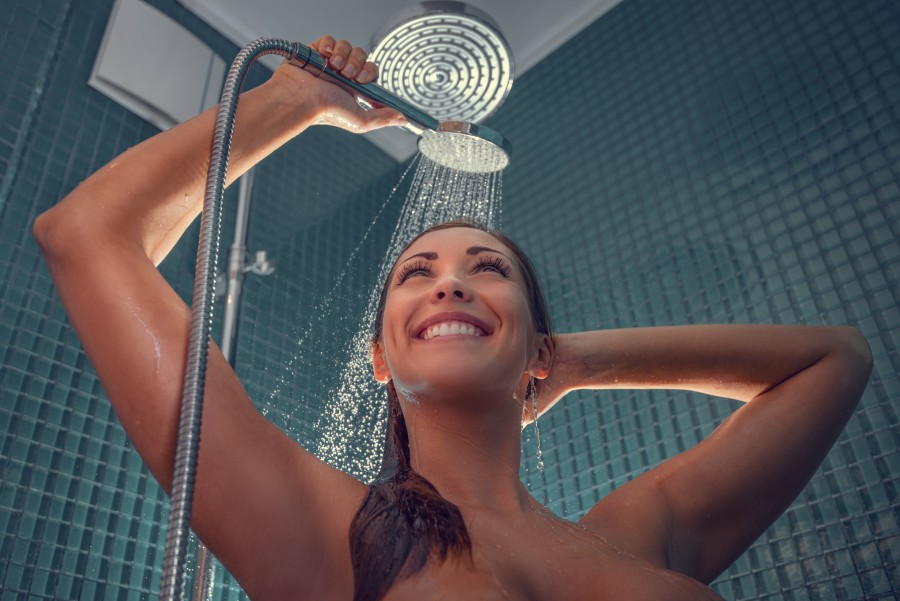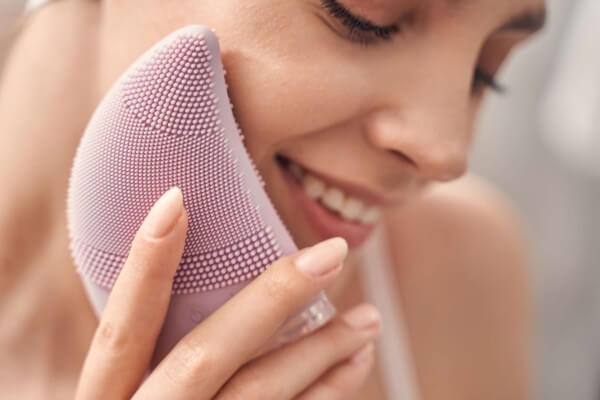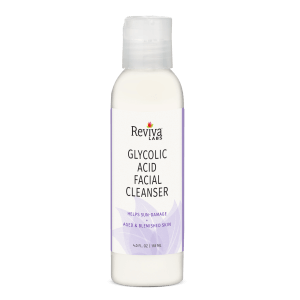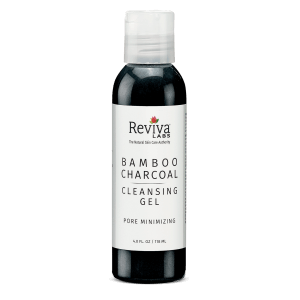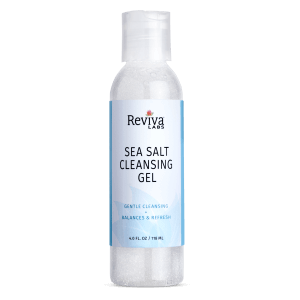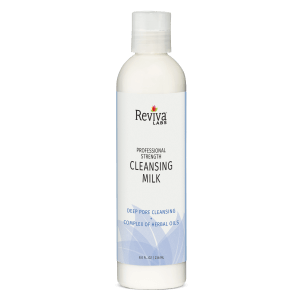Natural, Reviva Labs, Skin Care
Navigating Hard Water: Protecting Your Skin from the Unseen Adversary
A relaxing shower at the end of a long day is a sheer delight. But what if the water flowing from your showerhead isn’t as innocent as it seems? What if the very thing we trust to cleanse us is quietly damaging our skin? Welcome to the world of hard water, an unseen adversary that could be impacting your skin’s health and beauty without you even realizing it.
The Unseen Adversary: What is Hard Water?
Hard water is a common occurrence in many households globally. Characterized by a high concentration of dissolved minerals, particularly calcium and magnesium, hard water is not only an issue for your plumbing and appliances but can also have a profound impact on your skin and hair.
The Mineral Menace
Hard water’s high mineral content is a double-edged sword. While these minerals are essential for our health when ingested, they can wreak havoc on our skin when applied topically. When combined with soap or shampoo, they react to form insoluble salts, often leaving a chalky residue known as soap scum on your skin and hair. This residue can clog pores, leading to acne, and exacerbate skin conditions like eczema and dermatitis.
Geographical Variances
The hardness of water can vary greatly depending on where you live. Certain regions, such as New Mexico, Utah, Indiana, and Florida, are known for their hard water, while others may have softer water with fewer dissolved minerals. This geographical variation can explain why your skin and hair might feel different when you travel.
The Hidden Impact on Our Skin
Our skin is our body’s first line of defense against external factors. Hard water’s high mineral content can disturb this protective barrier, leading to various skin problems.
The Soap Scum Situation
The interaction between hard water and soap is far from harmonious. Instead of forming a lather, hard water reacts with soap to create soap scum, a sticky residue that clings to your skin. This residue can clog your pores, leading to breakouts and worsening skin conditions like acne and eczema.
Dryness and Irritation
Hard water is notorious for stripping the skin of its natural oils, leading to dryness and irritation. The minerals in hard water can create an imbalance in the skin’s pH level, which can trigger skin breakouts and accelerate skin aging.
Accelerated Aging
Hard water can also speed up the aging process. The impurities in hard water, such as iron and magnesium, can form free radicals that damage healthy skin cells. This damage can lead to fine lines, wrinkles, and even a breakdown of collagen, the protein that keeps your skin firm and healthy.
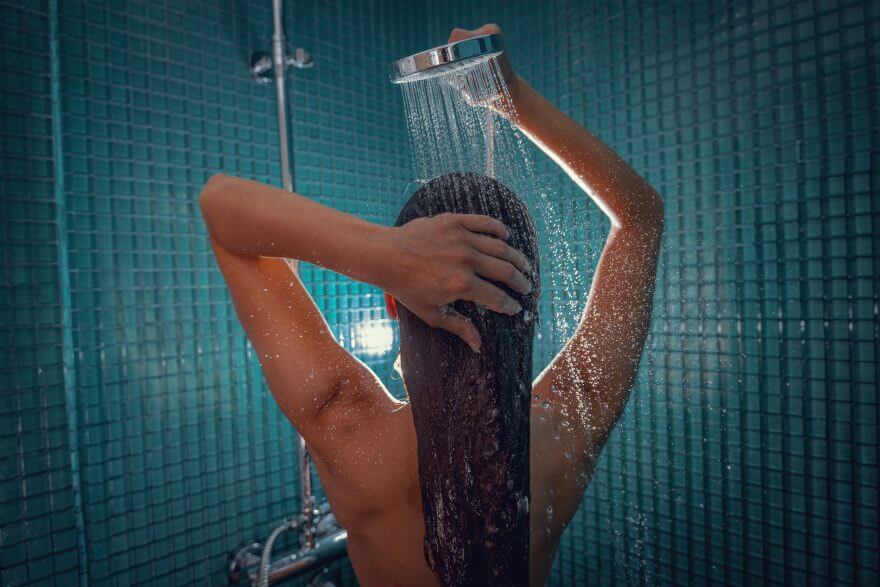
How to Win the Hard Water Battle: Practical Skincare Tips
Waging war against hard water doesn’t mean you have to move to a location with softer water. Here are some practical tips you can implement to protect your skin from hard water’s damaging effects.
Install a Water Softener or Filter
The first line of defense against hard water is to install a water softener or filter. These devices work by removing excess minerals from your water, providing softer, gentler water that is kinder to your skin and hair.
Switch to a Gentle, Fragrance-Free Cleanser
Hard water can make it difficult for soap to lather and rinse off properly. Swapping your regular soap for a gentle, fragrance-free cleanser can help. These cleansers are typically more hydrating and less likely to leave a residue on your skin.
Hydrate, Hydrate, Hydrate
Hard water can leave your skin feeling dry and tight. To combat this, make sure to moisturize your skin religiously after every shower. Opt for moisturizers that contain ingredients like ceramides and niacinamide, which hydrate and strengthen the skin barrier.
Adjust Your Showering Habits
Hot water and long showers may feel comforting, but they can exacerbate the drying effects of hard water. Stick to lukewarm water and keep your showers short to minimize skin dryness and irritation.
Use Micellar Water for Cleansing
Micellar water is a great alternative to traditional soap-based cleansers. It contains tiny particles called micelles that can effectively remove dirt and oil from the skin without the need for rinsing with water.
Protect Your Skin with Sunscreen
Hard water can leave your skin more vulnerable to sun damage. Daily application of a broad-spectrum sunscreen can protect your skin from the harmful effects of UV rays.
Stay Hydrated and Maintain a Balanced Diet
Drinking plenty of water and consuming a balanced diet rich in fruits and vegetables can help maintain your skin’s health from the inside out.
Consider Using a Humidifier
A humidifier can help keep your skin hydrated by adding moisture to the air. This can be especially beneficial in dry climates or during the winter months.
Regularly Clean and Replace Your Shower Head
Shower heads can accumulate mineral deposits over time, which can affect the quality of your water. Regular cleaning or replacing your shower head can help ensure you’re not showering with overly mineral-laden water.
The Verdict: Is a Water Softener Worth It?
While a water softener is not a magic bullet for all skin conditions, it can be a valuable tool in your skincare arsenal, especially if you live in an area with hard water. Not only can it help alleviate skin issues, but it can also extend the lifespan of your appliances and make cleaning easier.
However, it’s important to remember that skin health is multifaceted. While addressing hard water is a significant step, it’s equally crucial to maintain a balanced diet, stay hydrated, and follow a regular skincare routine.
Remember, your skin is unique. What works for someone else may not work for you. It’s always a good idea to consult with a dermatologist or a skincare professional before making any significant changes to your skincare routine.
As you navigate your hard water journey, remember the words of French novelist Marcel Proust: “The real voyage of discovery consists not in seeking new landscapes, but in having new eyes.” By understanding the potential impact of hard water on your skin and taking the necessary steps to minimize it, you’re not just improving your skin’s health, but also gaining a new perspective on the things that matter to your well-being.



